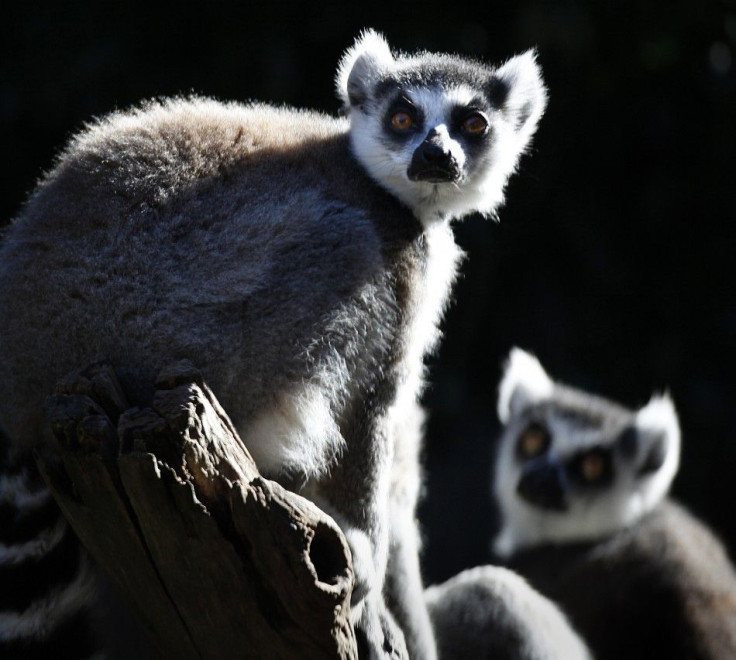Lemurs Killed, Eaten More in Madagascar as Taboos Fade

Nearly 100 species of lemurs call Madagascar home, but the wide-eyed primates are now in danger as local customs and taboos that protect lemurs have begun to erode, leaving them vulnerable for hunting and consumption.
For most of the island's history, humans respected and worshipped the black and white long-tailed mammals, and it was widely believed that catching, mocking, killing, or eating lemurs brought sickness, bad luck or hardship to you and your family.
One popular lemur taboo story goes like this: A little boy heads into the forest to find some honey. He spots a hive in a high tree and he ascends it. As he's about to reach in to collect the honey, he is immediately attacked by bees. The surprise causes the boy to lose his grip on the tree branch, and he falls to what is almost certainly his death. As the boy plummets toward the earth, a large lemur suddenly appears, swoops in and catches the boy, saving his life. The Malagasy elders say that since that fateful day, no one should harm a lemur, called indri to the natives, lest they suffer extreme misfortune.
These taboos, which the Malagasy call fady, have long protected the lemurs from hunting and consumption. Yet, despite their cute, anthropomorphic appearance and common ancestry with humans, it's now becoming popular to kill and eat lemur.
But why the sudden change? Biologists and sociologists believe that foreign influence and the recent influx of immigrants to the island have diluted the power of the lemur taboos.
When you have globalization and outside influences, traditional cultures break down and change faster, said Julia Jones, a University of Bangor researcher who helped write a paper on bushmeat consumption in Eastern Madagascar.
Locals are now adopting foreign customs; for example, many Malagasy now head to the bar after a long day of work to enjoy some beer and fried foods made of, you guessed it, local products.
There's no other meat besides bush meat available, said Julie Razafimanahaka, the director of Madagasikara Voakjy, an NGO conservation group based in Madagascar.
Studies show that Madagascar is a hotbed for biodiversity, which lends itself to wild game hunting. In one survey of 1,154 Madagascan homes, 95 percent of respondents had eaten at least one protected species, and almost 50 percent had eaten more than 10.
Lemurs, which are very sensitive to habit distrubances, are also under assualt from climate change, weather disasters and mass deforestation in the country. There are 121 endangered lemur species and nine critically endangered black-and-white ruffed lemurs, but with the extremely slow reproduction rate of one offspring every one to three years, the population won't be able to recover if the Malagasy continue to poach the creatures.
There are still treasures and discoveries to be made in Malagasy forests, said Dr. Jonah Ratsimbazafy, the conservation coordinator at the Durrell Wildlife Conservation Trust in Madagascar. By the time we discover them, the next day they'll be gone.
Local conservationists are doing their part to push wildlife enforcement with the Madagascar government, disseminate information about lemurs, and explain why they are so important to the country. In 2007, tourism accounted for 6 percent of Madagascar's GDP and about 5 percent of all jobs.
Most people come to Madagascar to see lemurs, said Dr. Patricia Wright, a primatologist at Stony Brook University. If lemurs are gone, there's no reason for them to come and bring so many tourist dollars with them.
Madagascar is still struggling with poverty, which has forced people to hunt and eat wild animals like the lemur. In addition, other protein-rich animals have difficulty surviving in Madagascar's rain forest climate, so the country is looking for other ways to make domestic meat an option. For instance, raising chicken farms could reduce lemur hunting while cutting down on malnutrition.
Lemurs are the country's flagship species, Dr. Ratsimbazafy said. They are our pride.
© Copyright IBTimes 2024. All rights reserved.






















